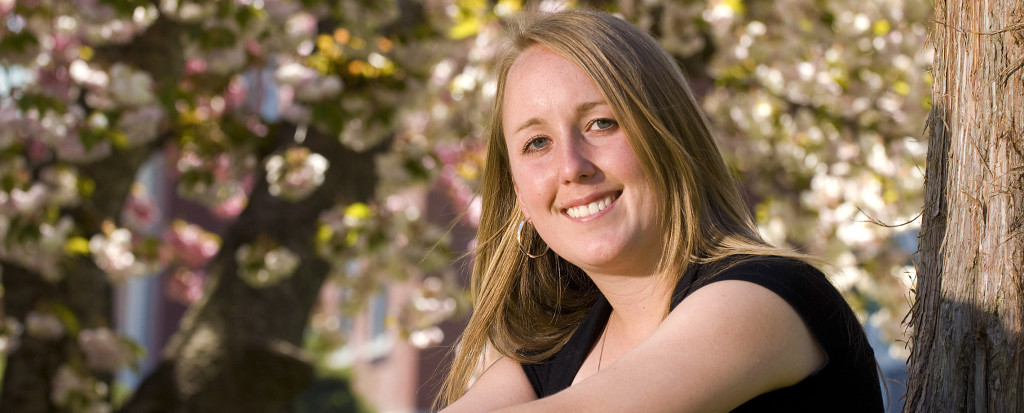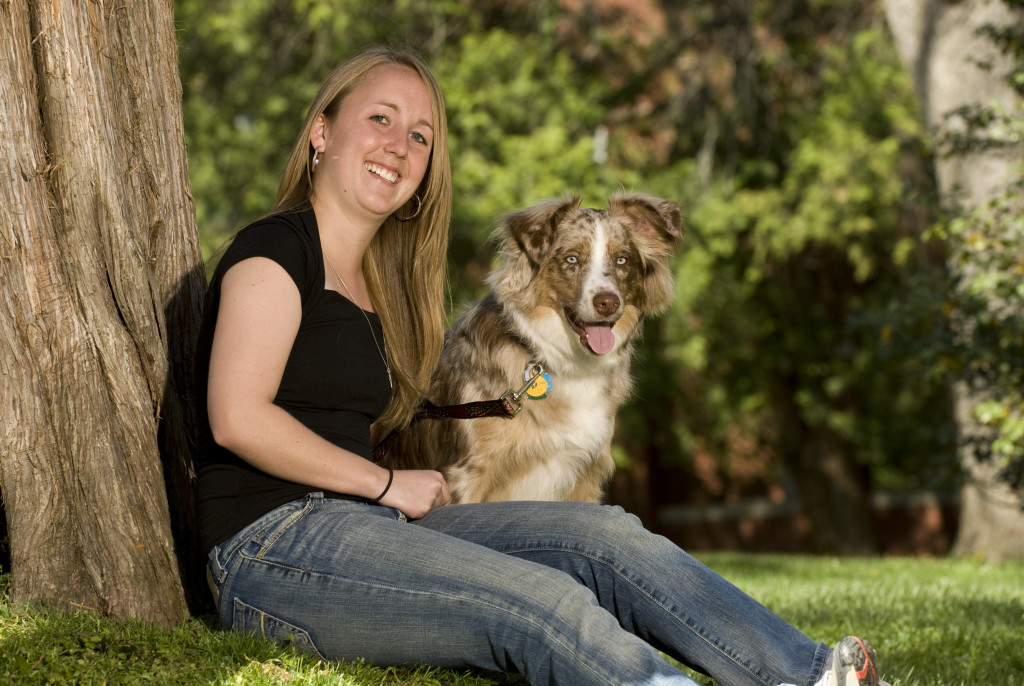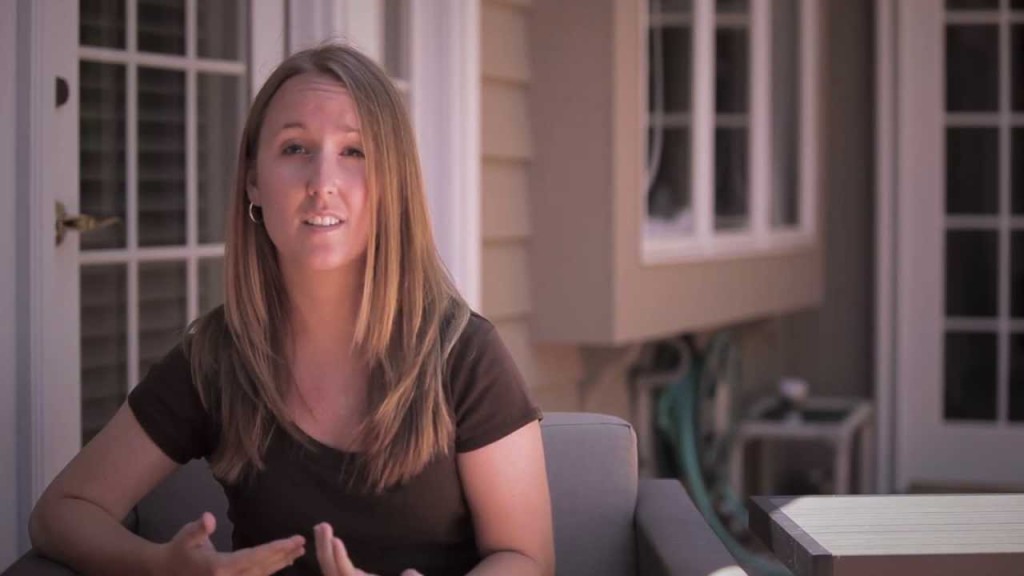Christine Exley ’09 fell in love with “the economics way of thinking” as a University of Mary Washington student in Professor Shawn Humphrey’s class eight years ago. Now, as an assistant professor of business administration at Harvard Business School, she shares her global economics’ perspective with her students.
In 2008, her economics mentor had just begun the Two Dollar Challenge. Humphrey taught his students that the study of economics could be used to solve real-world problems and help make the world a better place. It’s a lesson that Exley took to heart.

Humphrey, who has said “I have a knack for mobilizing global grassroots movements on a shoe-string budget,” began the Two Dollar Challenge at UMW. In its 10th year, the challenge has now spread to college campuses across the U.S. It took place at UMW earlier in April this year, with tarps set up on Ball Circle and students huddling underneath, getting by on $2 a day.
Exley was in the first group of UMW students who participated in the challenge back in 2008. “It was a really good conversation opener to start talking about the issues around poverty, how we might want to think about the role economics can play – if any – in trying to help individuals,” she said.
It was certainly a moving experience for Exley. “You can’t help yourself but to think of how this is a very real problem, how there are a lot of people who struggle to get by on a daily basis both in the U.S. and elsewhere,” she said. College students, she said, tend to be idealistic, hoping to contribute to broader societal solutions. But “it’s a complicated problem and there’s no magic-bullet solution. And that’s both discouraging and inspiring.”
Exley graduated from UMW in 2009 and went on to earn a master’s and a Ph.D. at Stanford University. During the second year of her Ph.D. program, she and a friend, Stanford MBA graduate Elena Battles, started an organization called Wagaroo. A clearinghouse for pet owners, shelters and rescue organizations, its primary goal is bringing efficiency to the pet adoption market.
Combining their knowledge of applied economics – Exley’s been involved in animal rescue since she was 11 – and passion for animal rescue, she and Battles saw “a marketplace that has every market failure under the sun. There’s such a surplus of different types of dogs in different areas, even though there’s a shortage of dogs in some areas.”
Exley discovered what she called an “information asymmetry” in the dog rescue model and began working to try to come up with a more effective formula. She developed a matching algorithm designed to get people skipping the shelter and rehoming dogs among their own networks. “We thought it was an interesting market and it had great potential,” she said.
This spiraled off into Wagaroo’s “Family to Family” program, which Exley considers their biggest success to date. “It can be great for everyone involved, for the family who doesn’t have to surrender their dog to the shelter and for the individual who’s acquiring the new dog.”
On the website Wagaroo.com, people can search by breed, size, age, gender and other details.
Exley will soon begin teaching a course in negotiation in Harvard Business School’s MBA elective curriculum. Her research explores how behavioral motivations often have nuanced implications in the realm of prosocial behavior, with a particular focus on charitable giving and volunteer decisions.
And she will never stop trying to make the world a better place.

